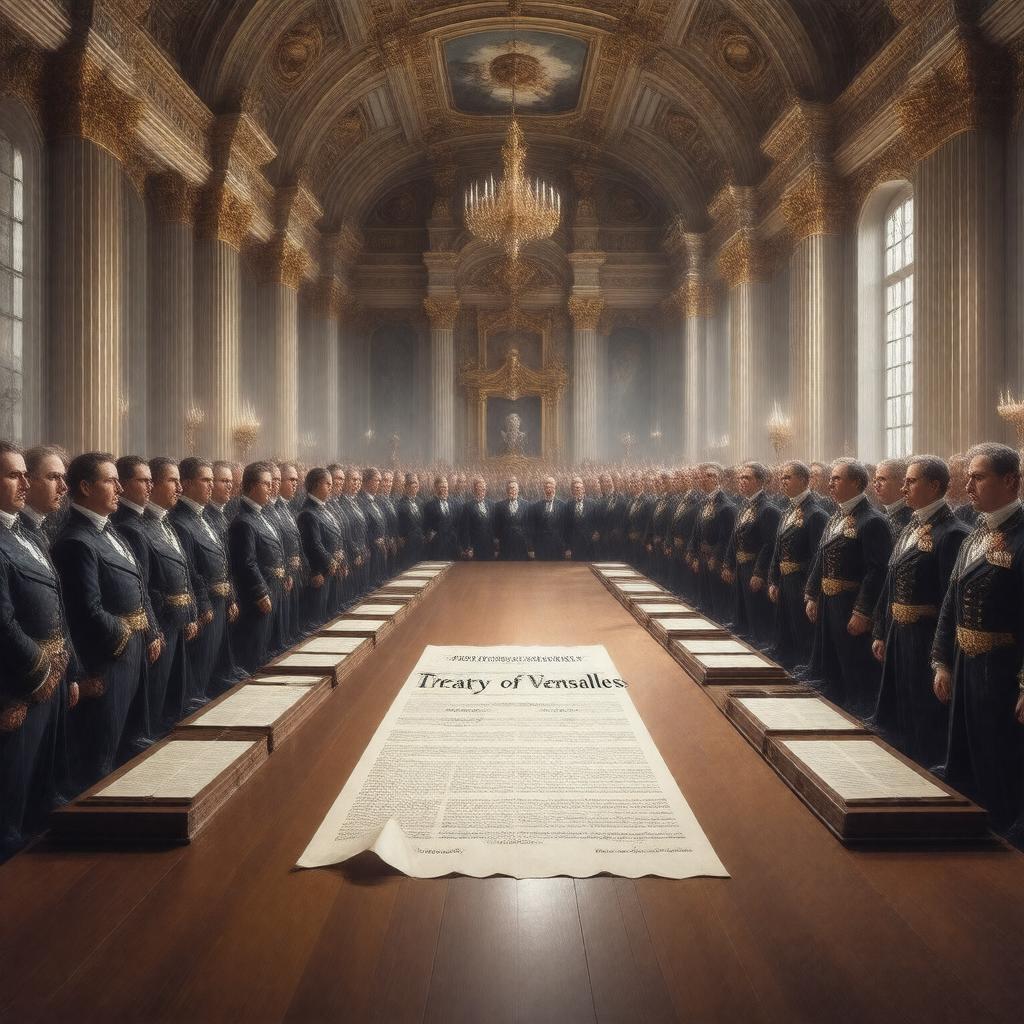Prompt
"Create an image of a historic, formal document with the title 'Treaty of Versailles' prominently displayed, surrounded by representatives of various countries, including France, Germany, the United Kingdom, Italy, and the United States, in a grand, ornate hall with a large wooden table, symbolizing the signing of the treaty on June 28, 1919, marking the end of World War I; style: formal, realistic, and historically accurate."

